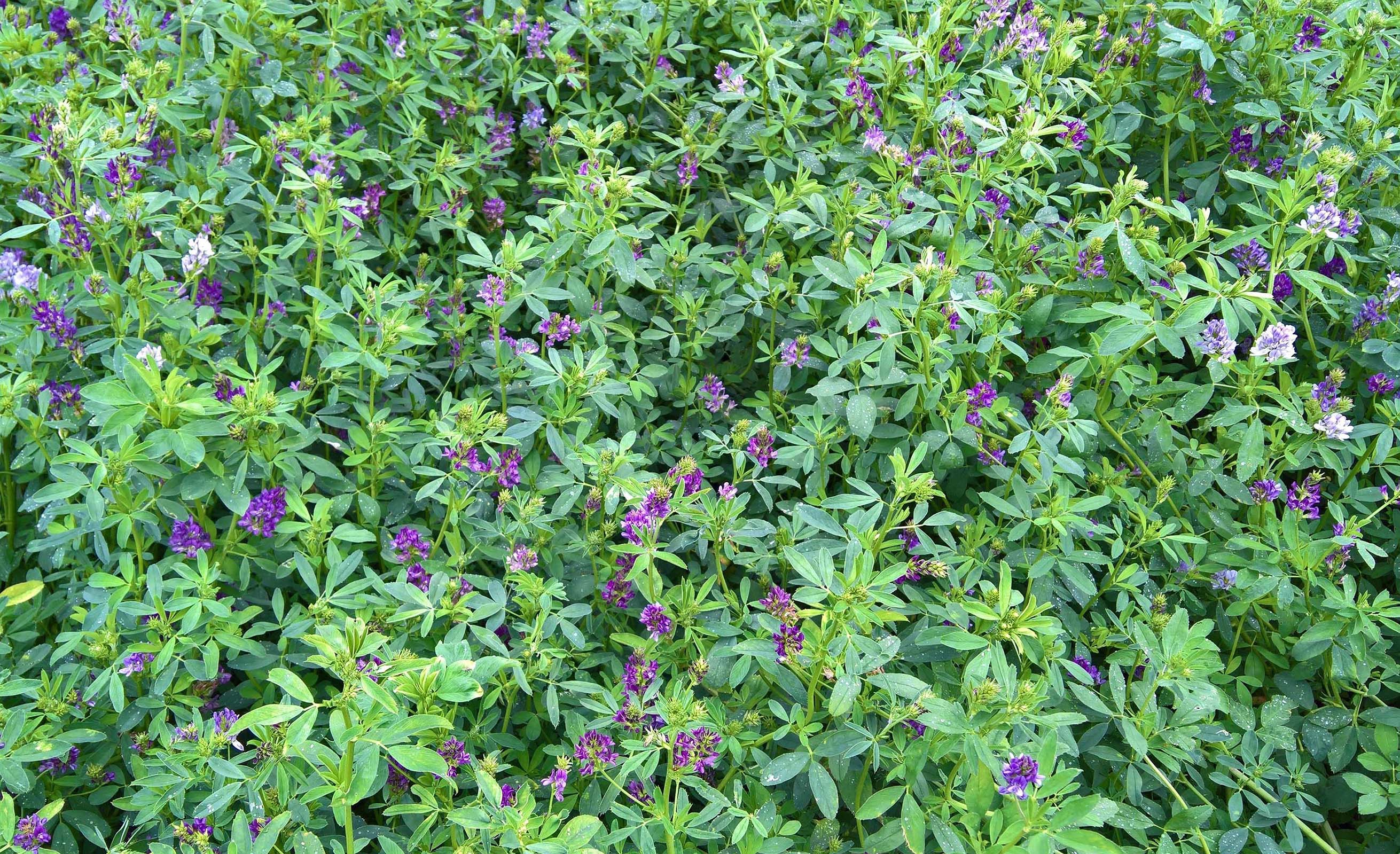Particularly on organic farms, it is self-evident and necessary to lay the foundation for the most extensive crop rotation possible by growing field fodder in the form of clover grass. On the one hand, this allows the nutrient cycles to be optimized, the soil's functions to be improved and, on top of that, a very valuable basic feed to be produced.
In order for the valuable and agriculturally most important function of nitrogen fixation to be fulfilled, a balanced supply of certain nutrients is important. Sulfur is of particular importance in fodder legumes. The important nutrient partner in the fixation process is significantly involved in the formation of the enzyme nitrogenase. A lack of sulfur manifests itself in nitrogen by a factor of ten. In particular, the reduced sulfur inputs from the atmosphere over the last three decades make additional fertilization necessary in certain locations. Results: The use of elemental sulfur at different fertilization levels showed some significant effects, particularly in the yields of the next crop of winter wheat.
Numerical yield differences between the fertilization variants were found in the yields of red clover, red clover grass, alfalfa and alfalfa grass. The differences could largely not be confirmed statistically, although a clear trend emerged. The background of very dry and very warm weather during the two growing seasons had a negative effect on the growth of forage legumes. Effects of fertilization were particularly evident in the subsequent crop of winter wheat. Here, the respective type of mixture had an influence on the yield and the after-effects of the mixture on the XP yield of winter wheat were particularly significant. Based on the trend identified, which was observed over both years of the experiment and was also evident in the subsequent crop, it can be assumed that there may be a fertilization effect. Due to the weather and the limited duration of the experiment, it was not possible to examine the effects in the long term.
The reaction to the individual fertilization levels was at different fertilization levels for the legumes involved, red clover and alfalfa. Further work on this question is ongoing in ongoing experiments.







